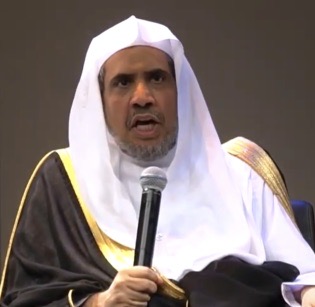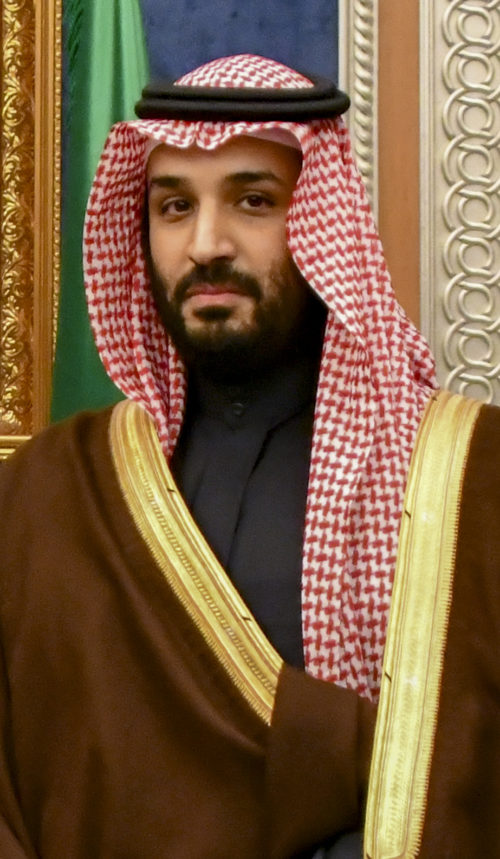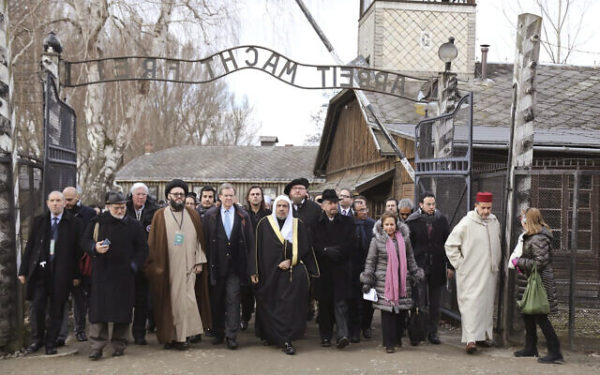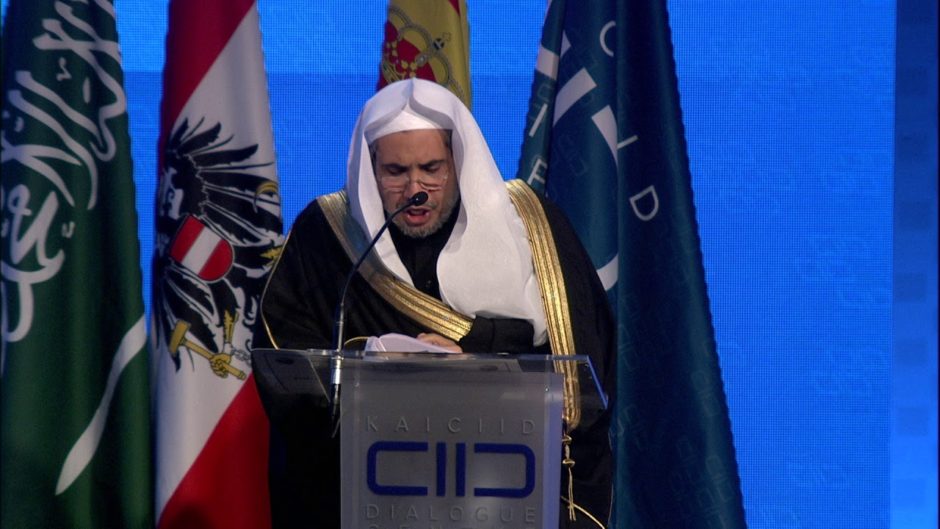Mohammad bin Abdulkarim al-Issa, the secretary-general of the Muslim World League, an organization subsidized by Saudi Arabia, visited the former Auschwitz-Birkenau extermination camp in Poland a few days ago in a ground-breaking interfaith trip that could open the door to improving Muslim-Jewish relations and normalizing the discussion of the Holocaust in the Muslim and Arab worlds.

Issa, leading a delegation of 62 Muslims from 28 nations, was accompanied by the chief executive officer of the American Jewish Committee, David Harris, and a number of American Jews, some the children of Holocaust survivors. They made the trip on January 23, four days shy of the 75th anniversary of the liberation of Auschwitz-Birkenau by the Red Army.
Issa was the most senior Muslim religious official ever to appear at the memorial, a Polish official noted.
Describing his visit as “a sacred duty and a profound honor,” Issa said, “The unconscionable crimes to which we bear witness today are truly crimes against humanity. That is to say, a violation of us all …”
Issa’s visit was widely expected.
After touring the U.S. Holocaust Memorial Museum in Washington, D.C. in May 2018, Issa wrote an op-ed piece for The Washington Post in which he condemned “heinous” Nazi crimes and declared that Muslims “around the world have a responsibility” to learn the lessons of the Holocaust. As he put it, “I urge all Muslims to learn the history of the Holocaust, to visit memorials and museums of this horrific event, and to teach its lessons to their children.”
In retrospect, Issa’s appearance at the American museum and the Polish memorial was nothing less than historic, considering the fact that the Muslim World League once disseminated anti-Israel and antisemitic propaganda, according to the Washington Institute for Near East Policy.

Issa is close to Crown Prince Mohammed bin-Salman, the heir to the Saudi throne who has been implicated in the murder of Saudi dissident journalist Jamal Khashoggi, but who has taken baby steps to distance the ruling House of Saud from its longstanding association with the hardline interpretation of Islam known as Wahhabism. Issa has embraced the prince’s policy, his outreach to American Jewish organizations and his relatively moderate approach to Israel.
Although the Saudis are technically still in a state of war with Israel, Saudi Arabia and Israel share one common enemy in the Islamic Republic of Iran, whose regional hegemonic goals and ambitions are sharply at odds with theirs.
Saudi Arabia’s position toward Iran could, of course, change in the future, but as long as they remain foes influential Muslim clerics like Issa can make a difference with respect to improving the currently abysmal state of Muslim-Jewish relations, which sank to a new low in the wake of the Arab terrorist attacks in the United States on September 11, 2001.

Issa’s visits to Auschwitz-Birkenau and the U.S. Holocaust Memorial Museum could well persuade Muslim and Arab countries to accept the Holocaust at face value and thereby include it in the curriculum of their schools. This could have a beneficial effect on young and impressionable Muslims, whose minds have been poisoned by the Arab-Israeli conflict and influenced by Holocaust denial.
Issa could well leverage his position to achieve this objective and press for much-needed reforms in traditional Arab societies. One can only hope he succeeds. Certainly, he has got off to a promising start by visiting Auschwitz-Birkenau, the ultimate symbol of evil.
